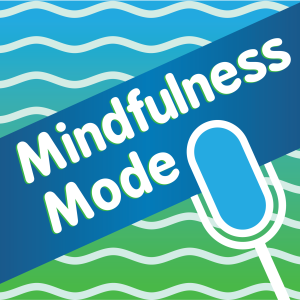
Dr. Rhoberta Shaler is the 'Relationship Help Doctor'. She provides urgent and on-going care for relationships in crisis. She particularly helps the partners, the exes, adult children, and co-workers of the crazy-making, relentlessly difficult people that she calls, 'Hijackals'. She helps them save their sanity and stop the crazy-making. Even the United States Marines have called on Doctor Shaler for help. She's a relationship expert and speaker and author of 16 books. She consults with clents world-wide through the internet and she's host of two podcasts. One is called 'Emotional Savvy: The Relationship Help Show' and the other podcast is called 'Save Your Sanity: Help For Handling Hijackals'.
Contact Info- Website: www.ForRelationshipHelp.com
- Free Book: www.Hijackals.com
- Podcast: Emotional Savvy: The Relationship Help Show'
- Podcast: Save Your Sanity: Help For Handling Hijackals
- Get Spiritual Quotes: Go to www.DailySpiritualQuotes.com
- Facebook Group: Simply Pour Rhoberta Shaler
- Joel Goldsmith (Author)
- I think mindfulness levels your emotions. It doesn't take out the peaks and valleys, but you understand that you choose the state that you stay in.
- Well, I think it's key to everything. When you stop and you allow yourself to let your shoulders down from your ear lobes, you take a deep breath and you open your chest and you open your heart at the same time.
- Then when you allow yourself to take a deep breath, it takes 20 seconds for the oxygen and a deep breath to go all the way around your blood system.
- So you refresh yourself completely. So when you are using your breath, you are actually regenerating yourself and when you do that it calms you and helps you think more clearly.
- Book: The Heart of Mysticism: The Infinite Way Letters 1955-1959 by Joel Goldsmith
- App: Cell Phone Alarm
- I was in the education world for a long time as a teacher and then I became a school administrator and it was at a time that really stands out for me.
- When I had the opportunity, I was given an entire extra classroom to do what I wanted. So every morning I would have all the children including all the special needs children sit in a big circle and I invited their parents to come and spend that first 20 minutes of the day with us.
- And why I did that was there was a lot of unrest. There was a lot of children who were difficult and a lot of special needs children. And there were of course bullies in the mix.
- And so if we're all participating in something, it became something that everybody then said, okay, to. There were not any people who were not doing it.
- And what we saw during that time where we would just sit quietly, maybe we'd play with energy a little bit, you know, we'd rub our hands together and make energy, go round the circle or we'd do a visualization or whatever.
- We saw a real change and then I had an opportunity to be the administrator of a school for at risk teenagers. And of course there was a lot of this going on, you know, make them do this and all that when I got there.
- And I know that's not the way it's going to work, we're going to feed them.
- And so, we made a huge change. These kids who were going out and stealing cars and doing home invasions on the weekends; through love and sitting quietly, they changed.
- From the time that I went there to work, Bruce, the average length of time a child was staying in the school was three months.
- By the time I left five years later, we had not had a vacancy for 18 months.
More Episodes
 2024-11-14
2024-11-14
 416
416
 2024-11-07
2024-11-07
 625
625
 2024-10-31
2024-10-31
 633
633
 2024-10-24
2024-10-24
 693
693
 2024-10-17
2024-10-17
 750
750
 2024-10-10
2024-10-10
 832
832
 2024-10-03
2024-10-03
 736
736
 2024-09-26
2024-09-26
 675
675
 2024-09-19
2024-09-19
 705
705
 2024-09-12
2024-09-12
 673
673
 2024-09-05
2024-09-05
 739
739
 2024-08-29
2024-08-29
 694
694
 2024-08-22
2024-08-22
 716
716
 2024-08-15
2024-08-15
 674
674
 2024-08-12
2024-08-12
 571
571
 2024-08-08
2024-08-08
 633
633
 2024-08-05
2024-08-05
 766
766
 2024-08-01
2024-08-01
 678
678
 2024-07-29
2024-07-29
 616
616
 2024-07-25
2024-07-25
 590
590
Create your
podcast in
minutes
- Full-featured podcast site
- Unlimited storage and bandwidth
- Comprehensive podcast stats
- Distribute to Apple Podcasts, Spotify, and more
- Make money with your podcast
It is Free
- Privacy Policy
- Cookie Policy
- Terms of Use
- Consent Preferences
- Copyright © 2015-2024 Podbean.com



